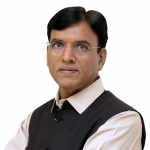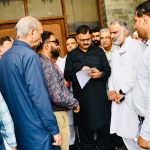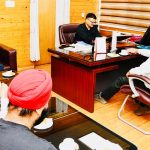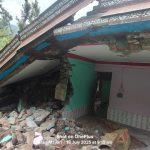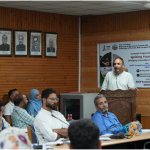Beyond The Interview
I have always believed in hard work. I’ve carried dreams quietly but worked on them loudly doing everything in my power to prepare myself. Recently, I had the opportunity to sit for an interview at a respected private firm in my field. I was excited, but also anxious not because I doubted my abilities, but because I sensed a disconnect that had been quietly brewing for a long time.
The interview panel was polite and welcoming. But as the questions began, the conversation took an unexpected turn. They started asking about concepts and perspectives that had never been part of our academic training. As a student of agriculture from a regional institution, I had spent over a decade immersed in my field—yet no one had ever introduced us to such frameworks or ways of analytical thinking.
In that moment, I felt helpless. My answers didn’t match their expectations—not due to a lack of effort or understanding, but because I had never been exposed to that kind of intellectual approach. That’s when a hard truth hit me: our institutions teach us one thing, but the world often tests us on something else entirely.
That interview became more than just a professional hurdle it turned into a deeply personal experience. Despite my hard work and commitment, I felt as though I was falling short. And worse than not being able to answer one unfamiliar question was the feeling of being judged entirely for it, even when I had answered many others with confidence.
I left the room feeling that my years of dedication had been overshadowed by one topic I’d never encountered. But the experience also made me reflect on a broader issue—how our education system, especially in many regional institutions, continues to teach in one dimension while the real world demands another.
We’re taught facts, not how to question or apply them. We’re trained to pass exams, not to participate in interviews or contribute to innovation. This growing gap between institutional output and professional expectations leaves students like us stranded often blamed for not knowing what we were never taught.
If you’ve ever walked out of a room feeling like you weren’t enough, I want to tell you this: that moment does not define your worth. You are more than the one question you couldn’t answer. You are the result of years of persistence, quiet resilience, and unwavering effort.
It’s time we start talking about these mismatches in our education system—not to complain, but to improve. The world is changing, and so must the way we prepare our students.
That interview may have left me shaken, but it also opened my eyes. It reminded me that while my journey may have gaps, it also holds great potential. I still believe in dreams but now, I also believe in the power of asking better questions. Not just as students, but as a society.
(Author is PhD Scholar at SKAUST-K and can be reached at: [email protected])




